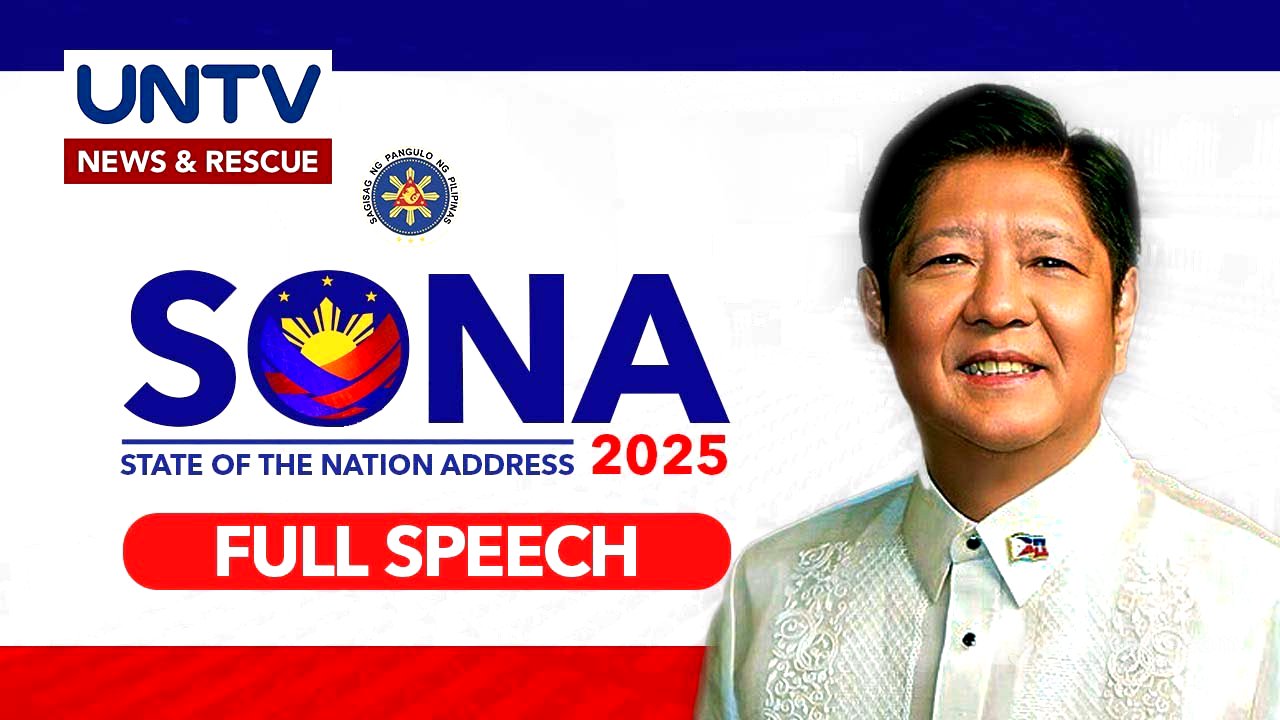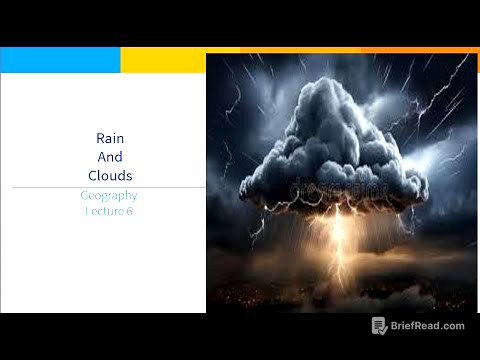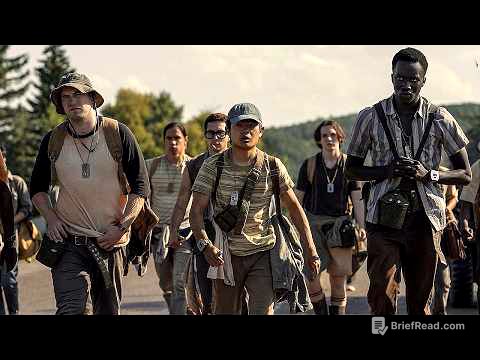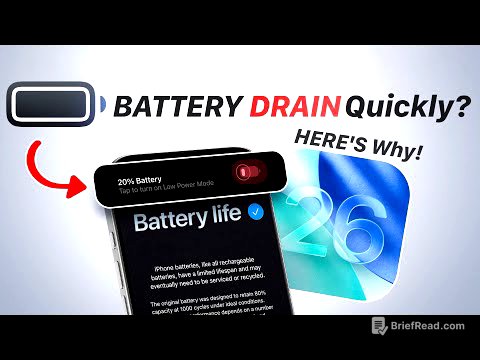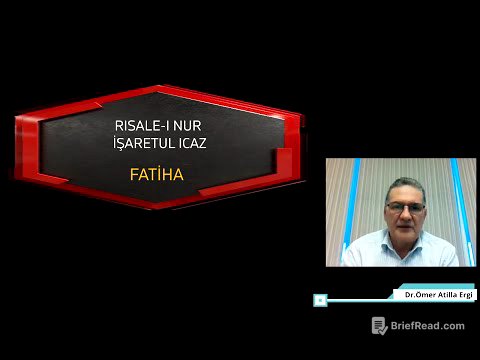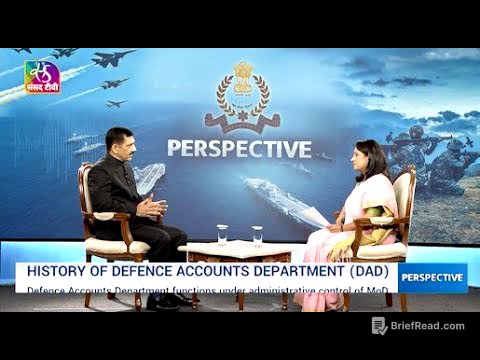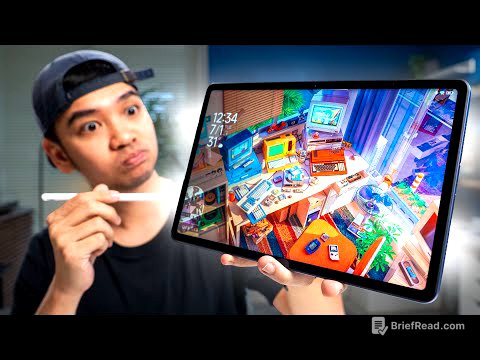TLDR;
President Marcos' speech focused on addressing key issues such as poverty, food security, education, healthcare, infrastructure, and peace and order. He outlined various government programs and initiatives aimed at improving the lives of Filipinos, including job creation, support for small businesses, agricultural development, infrastructure projects, and enhanced social services. The President also emphasized the importance of good governance, transparency, and accountability in all government endeavors.
- Focus on improving basic services and exceeding the comfort of Filipinos.
- Emphasis on agriculture, job creation, and support for small businesses.
- Infrastructure development, healthcare improvements, and educational reforms.
- Crackdown on corruption and commitment to transparency and accountability.
- Strengthening international relations and disaster preparedness.
Introduction and Acknowledgements [0:00]
President Marcos acknowledged the presence of former President Gloria Makapagal Aroyo, Senate President Jesus Cudero, House Speaker Ferdinand Martin Romaldes, Chief Justice Alexander Gesmundo, and other distinguished guests. He congratulated the newly elected and reelected senators and representatives of Congress. He recognized the historic nature of the recent elections and paid tribute to the Filipino people, especially the youth.
Addressing the Nation's Concerns [1:21]
President Marcos addressed the frustration and disillusionment of the people with the government, particularly regarding basic services. He acknowledged that while economic data might show progress, it is meaningless if the people are still struggling. He committed to focusing on improving the lives of Filipinos in the remaining three years of his administration.
Job Creation and Entrepreneurship [2:55]
The administration is focused on creating more jobs and providing capital to entrepreneurs to start small businesses and microenterprises with low interest rates and without collateral, as well as capital and protection for intellectual property. They aim to help nearly a million poor families start their own small businesses and will grow industries such as automobile manufacturing, electronics, biotechnology, and pharmaceuticals. He appealed to businessmen to invest in agriculture and emphasized that the Philippines is ready for international business investment, highlighting the dependable and skilled Filipino workforce.
Agriculture and Food Security [4:54]
President Marcos addressed the issue of affordable rice, stating that the government has proven it can provide rice at Php20 per kilo without disadvantaging farmers. This initiative has been successfully launched in Luzon, Visayas, and Mindanao and will be expanded nationwide through Kadiwa stores. He warned traders against manipulating rice prices and cheating farmers, considering such actions as economic sabotage. The government is also strengthening local pork production by distributing piglets and hens, building biosecured facilities, and vaccinating against ASF to reduce meat prices.
Support for Farmers and Fisherfolk [6:55]
Since the beginning of his administration, more than 100 million farmers and fisherfolk have received assistance. The government is intensifying programs to help more people, building thousands of kilometers of farm-to-market roads, irrigating thousands of hectares of land, and distributing machinery and facilities. They will build rice processing systems, facilities, and fiberglass boats for fishermen, supporting them from planting to selling. The administration plans to plant 15 million hybrid and high-quality coconut seeds this year, aiming for 100 million coconut trees throughout the Philippines, and will ask Congress to amend the Coconut Farmers and Industry Trust Fund Act to better suit farmers' needs.
Energy and Electrification [10:24]
The government is increasing power plants across the country, focusing on new technologies and clean energy like solar, windmills, and natural gas. Despite being known for renewable energy, many Filipinos still face energy problems, with three million households lacking electricity. The administration is accelerating connections and strengthening electricity producers. Since taking office, they have connected 2.5 million homes to electricity and aim to connect almost all plants, capable of lighting four million homes or 2,000 factories, in the next three years. The DOE and NEA are working to connect more households by 2028, especially in underserved areas, and plan to provide solar power home systems to over one million households.
Net Metering Program and Electricity Prices [12:24]
To help citizens save money and sell excess electricity, the Department of Energy will advance the Net Metering program, and the ERC will expedite its approval process to lower prices. The lifeline rate is being extended to include low-income families. President Marcos addressed the recent brownouts in Sikihor, which led to a state of calamity, and ordered the DOE, NEA, and ERC to restore normal power service before the end of the year, ensuring long-term solutions and investigating negligence.
Water Supply and Services [14:34]
The government has many large projects underway to ensure a good supply of clean water throughout the country, including modern water filtration systems. Despite these efforts, many complaints are received about water not reaching taps, affecting over six million consumers nationwide. The government is taking measures against poor service from water districts and their joint venture partners to fix water service and make prices more affordable, holding accountable those who neglect this public service.
Education and Youth Development [16:06]
President Marcos addressed the lack of knowledge and skills among the youth, especially in mathematics, science, reading, and comprehension, as well as issues of school dropouts. The administration is investing heavily in education, diligently repairing and improving the education system with strong values. This year, they have begun the academic recovery and accessible learning (ARAL) program and are strengthening early childhood care and development. Mental health of students is being monitored, and school counselors will be added. One billion pesos has been allocated to build more Barangay Child Development Centers and Bulilit Centers across the country, prioritizing those in remote areas.
Classrooms and Teacher Support [19:12]
Almost 22,000 classrooms have been opened in the past three years, with plans to add 40,000 more in partnership with the private sector. Laptops are being provided for every teacher in public schools, and high-tech digital materials, smart TVs, and free internet access are being made available. The focus is on helping students improve and increase their ambition in life, not just on passing them. The administration is working to make teachers' daily routines easier, adding 6,000 teaching items and providing jobs for licensed teachers.
TESDA and College Education [23:09]
Technology is being introduced to senior high schools through TESDA's TVET program, allowing students to choose fields like bookkeeping, agribusiness, electrical work, or graphic design. A large fund is available to finance free public college education, as well as subsidies and financial assistance for needy students. Over 2 million students are able to study in free college, and the number of TESDA scholarships has increased. High priority will be given to children from non-4P families attending college over the next three years.
Poverty Alleviation and Social Welfare [26:37]
The government is implementing programs to combat poverty and address health and nutrition. The 4Ps program is ongoing, with plans to amend the law to ensure enough time to address suffering and promote the poor. Since the administration began, over 5 million households have benefited from the 4Ps conditional cash grant, and almost 1.5 million families have graduated from the program. Efforts are being made to include those living on the streets in 4Ps and other DSWD programs to support their development.
Hunger and Nutrition Programs [28:03]
In the second year of the hunger-free program, 6,000 neediest households will receive nutrition assistance, with the goal of reaching every household by 2027. DSWD and DepED continue their feeding program for daycare centers and public schools, providing nutritious food and milk to over 3.5 million students nationwide. Additional funding will further increase the number of children provided with nutritious food.
Health and Wellness Initiatives [29:14]
The government is addressing the excessive increase in weight among adults by promoting active lifestyles through games, competitions, fun runs, and aerobics. LGUs are encouraged to open parks and plazas for citizens to exercise, and car-free Sundays are being implemented in several cities. The Philippine Sports Commission will open its track and field ovals to the public for free jogging. Support is being poured into sports and athletes across the country, with plans to develop a new national program for sports development starting in schools.
Healthcare Improvements and PhilHealth [33:04]
The administration is focused on improving healthcare, increasing the number of public hospitals and specialty centers, with 53 Bukas centers in 32 provinces offering free checkups, x-rays, and lab tests. Every town in the Philippines now has a doctor. PhilHealth benefits have been increased and improved, especially for prevalent diseases. Treatments for heart disease, cancer, and kidney disease are now covered by PhilHealth, with additional funding allocated for cancer medicines and vaccines. Dialysis sessions are free for the entire year, and coverage for kidney transplants and severe dengue has been increased.
Medical Assistance and Zero Balance Billing [37:50]
Patients can still count on the medical assistance program if they lack funds for hospital bills, with over one million Filipinos assisted since the administration took office. The medical assistance process will be simplified and included in the EGOV app. The government is supporting PhilHealth and providing additional funds to DOH hospitals to implement zero balance billing, meaning basic accommodation services in DOH hospitals will be free for patients.
Infrastructure Development [39:56]
The administration's extensive infrastructure program continues, with massive projects spread across the archipelago, including roads, bridges, trains, airports, ports, irrigation, and housing. While some projects will be completed after the current term, the foundation is being laid for the future. The MRT and LRT services are being improved, and the discount for PWDs, seniors, and students has been increased to 50%.
Transportation and Connectivity [41:29]
The government has started improving and putting road trains into service on the MRT. The "love bus" is being brought back and made free, starting in Metro Manila, with pilot testing in Davao and Cebu. The Bataan-Cavite Interlink Bridge, a 32 km bridge crossing Manila Bay, will begin construction before the year ends, reducing travel time from Maribeles to Naik to just 45 minutes. The PNR Bicoline bridges damaged by Typhoon Kristine are being strengthened, and the SLEX extension from Sta. Tomas, Batangas to Chaong, Quezon will be completed in 2026, reducing travel time to one hour.
Roads and Bridges [44:34]
The Dalil Seiat Bridge, the first of three important bridges in Tawi-Tawi, has been opened. The Mindanao Transport Connectivity Improvement Project will repair main roads connecting Cagayan de Oro to Davao General Santos. The rehabilitation of the Guadalupe Bridge is deemed extremely necessary, with a detour bridge to be built first to avoid closure. Hanging bridges in various places are being checked and repaired, especially those essential for teachers and students.
Combating Corruption in Projects [47:02]
The government will not tolerate administrative corruption, design and construction flaws, low-quality materials, project delays, or neglect in proper maintenance. Projects must be designed correctly, be of high quality, completed on time, and well maintained.
Internet Connectivity and E-Governance [48:30]
The internet is crucial for the new Philippines, facilitating and changing lives. Phases 1, 2, and 3 of the National Fiber Backbone Project have been completed, strengthening and speeding up internet access. Free wifi is being expanded nationwide, with almost 1,000 sites today compared to 4,000 in June 2022. Over one million sim cards with free data are being distributed to schools, especially in remote areas. The DIC and DepEd are ensuring that all public schools will have internet connections by the end of the year.
EGOV App and LTO [50:17]
The EGOV app, launched in 2023, is functional and beneficial, with over 40 government services, including LGUs, available. The app allows for various government services and processes to be performed and organized, such as driver's license renewal, PhilHealth, Pag-ibig, and JSIS. The LTO has finished making motorcycle license plates and must prevent license plate fraud from happening again, ensuring new vehicle registration and license plates appear within three days.
Peace and Order [52:24]
Peace is an important foundation of the new Philippines, and the government is strengthening the police and armed forces. Armaments, vehicles, warships, and weapons will continue to be increased in line with modernization and comprehensive defense. Thousands who previously rebelled against the government have returned home and are being supported with their families. There are no remaining gang groups in the country, and the AFP, PNP, and former rebels will work together to maintain order and peace in BARM.
Crime Reduction and Drug Enforcement [54:20]
Despite a decreasing crime rate, the police force is on guard and patrolling to ensure the people feel safe, responding to tasks within five minutes. The government is working to solve missing persons cases and will pursue and hold accountable those involved in illegal activities. Nearly 83 billion worth of drugs have been confiscated in raids, with over 153,000 operations performed and more than 6 high-value targets arrested, including elected officials and police.
International Relations and OFWs [57:22]
The Philippines is dealing with different countries in a proper, fair, and calm manner, complying with agreements and laws of the global community. The government is grateful to OFWs for demonstrating the goodness of Filipinos worldwide. In the face of new threats to peace and sovereignty, the country is more prepared, vigilant, and defensive, exercising restraint and remaining patient. The Philippines is a friend to all and an enemy to none, hosting the ASEAN Summit in 2026.
Disaster Preparedness and Response [1:00:33]
The government is diligently preparing for and monitoring the threat of disasters and calamities, especially in the new normal and changing climate. Proper behaviors should become natural and automatic whenever a disaster occurs, with continuous improvement based on every experience. Modern evacuation centers are being added, and schools should no longer be used as evacuation centers. Modern technologies are being used for early and effective prediction, and mobile command and control vehicles are helping in relief efforts.
Call for Cooperation and Accountability [1:02:32]
The government asks for cooperation, discipline, vigilance, and solidarity from citizens, including compliance with warnings and instructions, proper garbage disposal, and awareness of the nearest evacuation center. The President inspected flood control projects and found many to be sloppy and collapsing, calling for an end to corruption. The DPW must submit a list of all flood control projects from every region started or completed in the last three years, and the regional project monitoring committee will examine and report on failures and ghost projects.
Budget and National Expenditure Program [1:07:49]
For the 2026 national budget, President Marcos will return any proposed general appropriations bill not fully aligned with a national expenditure program, even if it results in a reenacted budget. He will not approve any budget not in line with the government's plan for the Filipino people.
Conclusion and Patriotism [1:08:35]
As the administration reaches its halfway point, President Marcos carries the lessons learned from the people, giving him a new appetite for work, enthusiasm for service, and dedication to the Filipino people. He calls for unity and focus on development, aiming for the greatest good for all Filipinos, possessing true patriotism. He encourages Filipinos to not be afraid, discouraged, or lose hope, as they are by nature brave, capable, hardworking, resilient, and good.
